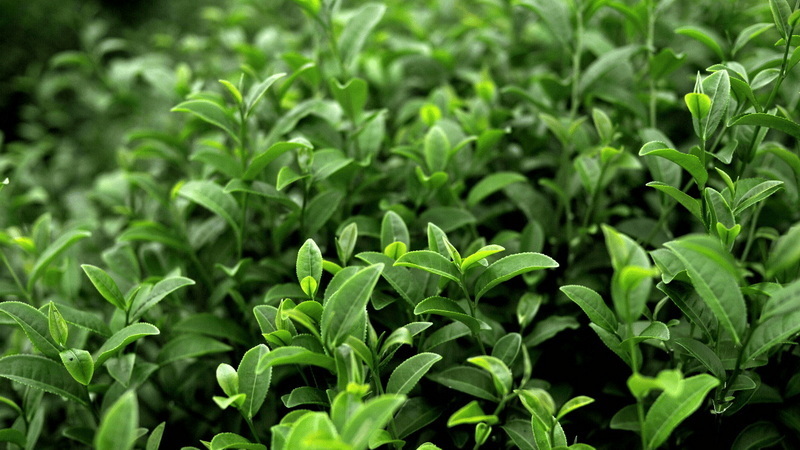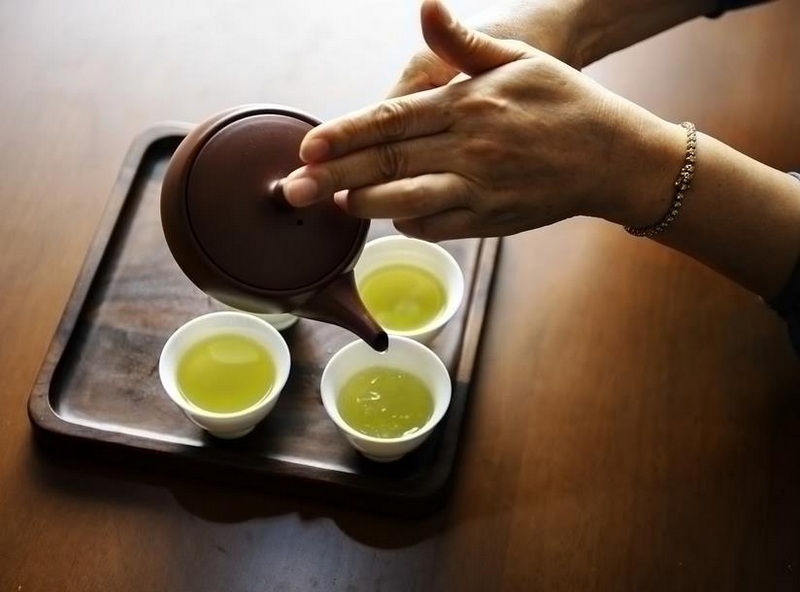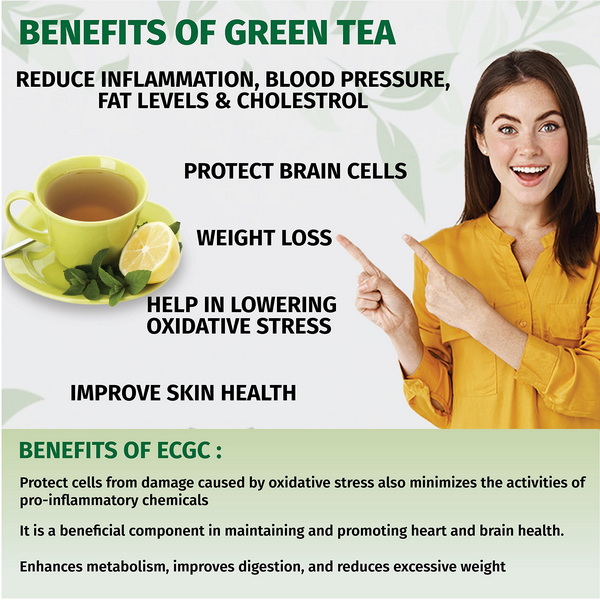Content Menu
● Understanding Green Tea and Its Extract
>> What is Green Tea Extract?
● How Much Green Tea Extract is in One Tea Bag?
● Health Benefits of Green Tea Extract
● Comparing Green Tea Bags to Other Forms
● Additional Health Benefits Explored
>> 1. Weight Loss and Metabolism
>> 2. Cardiovascular Health
>> 3. Cancer Prevention
>> 4. Liver Health
>> 5. Cognitive Function
● Conclusion
● FAQs
>> 1. Is it safe to consume multiple cups of green tea daily?
>> 2. Can I get enough EGCG from drinking green tea alone?
>> 3. Are there any side effects associated with green tea extract?
>> 4. How does brewing time affect the catechin content in my cup?
>> 5. What are some other forms of consuming green tea besides bags?
● Citations:
Green tea has gained immense popularity worldwide, not only as a refreshing beverage but also for its numerous health benefits. Among the various forms of green tea, tea bags are one of the most convenient ways to enjoy this drink. However, many people wonder about the concentration of beneficial compounds, particularly green tea extract, found in a single tea bag. This article will explore the amount of green tea extract in one tea bag, its health benefits, and how it compares to other forms of green tea.

Understanding Green Tea and Its Extract
Green tea is derived from the leaves of the *Camellia sinensis* plant. Unlike black tea, which undergoes fermentation, green tea leaves are quickly steamed or pan-fried to prevent oxidation. This process helps retain a higher concentration of antioxidants known as polyphenols, particularly catechins like epigallocatechin gallate (EGCG), which are credited with many of green tea's health benefits.
What is Green Tea Extract?
Green tea extract is a concentrated form of green tea that contains a higher level of catechins and other beneficial compounds than brewed green tea. It is available in various forms, including capsules, powders, and liquid extracts. The extraction process typically involves using solvents to isolate these beneficial compounds from the leaves.
How Much Green Tea Extract is in One Tea Bag?
The amount of green tea extract in a single tea bag can vary based on several factors, including the brand and type of green tea used. However, on average:
- Polyphenols: A typical cup of brewed green tea made from one tea bag contains approximately 100-150 mg of polyphenols.
- EGCG: Out of these polyphenols, about 75% is EGCG when brewed correctly. This means that one cup may contain around 75-112 mg of EGCG.
For comparison, a standard supplement capsule containing green tea extract can provide anywhere from 250 mg to 600 mg of EGCG per serving, significantly higher than what you would get from a single cup brewed from a tea bag.
Health Benefits of Green Tea Extract
Green tea extract is renowned for its potential health benefits, which include:
- Antioxidant Properties: The high concentration of catechins helps combat oxidative stress and reduce inflammation in the body.
- Weight Management: Studies suggest that green tea extract can aid in weight loss by enhancing metabolic rate and fat oxidation.
- Heart Health: Regular consumption may lower cholesterol levels and improve heart health by reducing blood pressure.
- Cancer Prevention: Some research indicates that the antioxidants in green tea may help reduce the risk of certain cancers by inhibiting tumor growth.
- Brain Health: Compounds like EGCG have been linked to improved cognitive function and may protect against neurodegenerative diseases such as Alzheimer's.Brewing Green Tea for Maximum Benefits
To maximize the health benefits when brewing green tea from a bag:
1. Use fresh, filtered water heated to around 175°F (80°C).
2. Steep the tea bag for about 3-5 minutes.
3. Avoid adding excessive sugar or milk, as these can diminish some health benefits.

Comparing Green Tea Bags to Other Forms
| Form | Polyphenols per Serving | EGCG per Serving | Convenience |
| Tea Bag (1 cup) | 100-150 mg | 75-112 mg | High |
| Green Tea Extract (Capsule) | 250-600 mg | 200-400 mg | Moderate to High |
| Loose Leaf Green Tea | 150-300 mg | 100-200 mg | Moderat |
As shown in the table above, while green tea bags are convenient for daily consumption, concentrated extracts provide significantly higher amounts of beneficial compounds.
Additional Health Benefits Explored
1. Weight Loss and Metabolism
Research has shown that green tea extract can enhance metabolic rates and promote fat oxidation. A study indicated that participants who consumed green tea extract experienced greater fat loss compared to those who did not. This effect is attributed to the combination of caffeine and catechins in green tea, which work synergistically to boost metabolism[1][9].
2. Cardiovascular Health
Green tea extract has been linked to improved heart health through its ability to lower cholesterol levels and reduce blood pressure. In clinical trials, participants taking green tea extract showed significant reductions in total cholesterol and LDL (bad) cholesterol levels[1][6]. The antioxidants present in green tea help prevent oxidative damage to cells lining the blood vessels, thereby promoting cardiovascular health[9].
3. Cancer Prevention
The polyphenols in green tea have been studied for their potential role in cancer prevention. Research suggests that these compounds may inhibit tumor growth and reduce the risk of certain cancers, including breast and prostate cancer[1][6]. The protective effects are believed to stem from their antioxidant properties and ability to modulate cell signaling pathways involved in cancer development[10].
4. Liver Health
Green tea extract may also benefit liver function by reducing inflammation and oxidative stress. Studies have shown that individuals with non-alcoholic fatty liver disease (NAFLD) who consumed green tea experienced significant improvements in liver fat content and overall liver function[5][10]. However, it is essential to consume it within recommended limits to avoid potential hepatotoxicity associated with excessive intake[2].
5. Cognitive Function
Emerging evidence suggests that the catechins found in green tea may support brain health by protecting against neurodegenerative diseases like Alzheimer's and Parkinson's disease. Studies indicate that regular consumption can enhance memory performance and cognitive function due to increased blood flow to the brain and reduced oxidative stress[1][6].Potential Side Effects
While moderate consumption of green tea is generally safe for most people, excessive intake—particularly through concentrated extracts—can lead to side effects such as:
- Nausea
- Headaches
- Liver toxicity
- Increased heart rate
It is crucial to adhere to recommended dosages when using supplements containing green tea extract[2][6].
Conclusion
In summary, one teabag typically contains about 100-150 mg of polyphenols and approximately 75-112 mg of EGCG when brewed properly. While this amount can contribute positively to your overall health regimen, those seeking higher concentrations may consider using supplements or loose leaf options. Regardless of the form you choose, incorporating green tea into your diet can be a flavorful way to enhance your health.

FAQs
1. Is it safe to consume multiple cups of green tea daily?
Yes, consuming up to eight cups per day is generally considered safe for most people. However, exceeding this amount may lead to side effects due to caffeine content.
2. Can I get enough EGCG from drinking green tea alone?
While you can obtain EGCG from drinking green tea, achieving therapeutic levels often requires supplementation due to the lower concentrations found in brewed forms.
3. Are there any side effects associated with green tea extract?
Some individuals may experience side effects such as nausea or liver issues when taking high doses of green tea extract. It's advisable to consult with a healthcare professional before starting any new supplement regimen.
4. How does brewing time affect the catechin content in my cup?
Longer brewing times generally increase catechin extraction; however, over-steeping can lead to bitterness. A balance between flavor and extraction time (3-5 minutes) is recommended.
5. What are some other forms of consuming green tea besides bags?
Other forms include loose leaf teas, powdered matcha, and concentrated extracts available in capsules or liquid form.
Citations:
[1] https://www.healthline.com/nutrition/10-benefits-of-green-tea-extract
[2] https://www.webmd.com/vitamins/ai/ingredientmono-960/green-tea
[3] https://www.scielo.br/j/cta/a/8Y9c3pBkGThNcY4PvjbzDbM/
[4] https://greentea-co-nz.myshopify.com/blogs/news/green-tea-extract-vs-loose-leaf-green-tea
[5] https://pubmed.ncbi.nlm.nih.gov/38031409/
[6] https://www.urmc.rochester.edu/encyclopedia/content?contenttypeid=19&contentid=GreenTeaExtract
[7] https://askthescientists.com/green-tea-extract/
[8] https://staarlabs.com/blogs/news/green-tea-vs-green-tea-extract
[9] https://www.mountsinai.org/health-library/herb/green-tea
[10] https://www.drugs.com/npp/green-tea.html






























